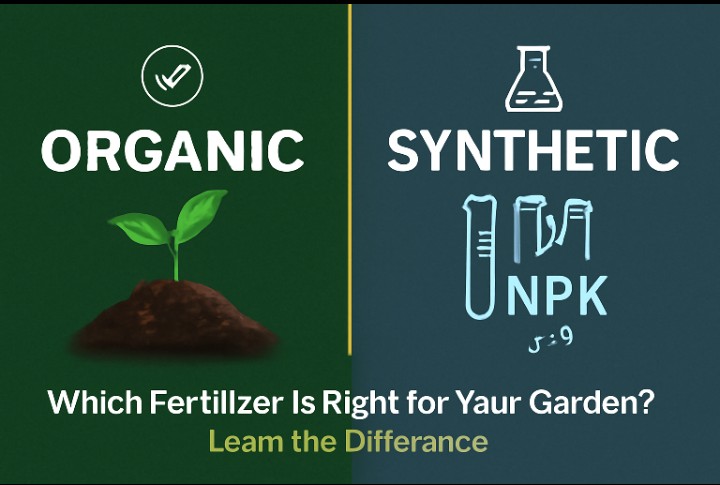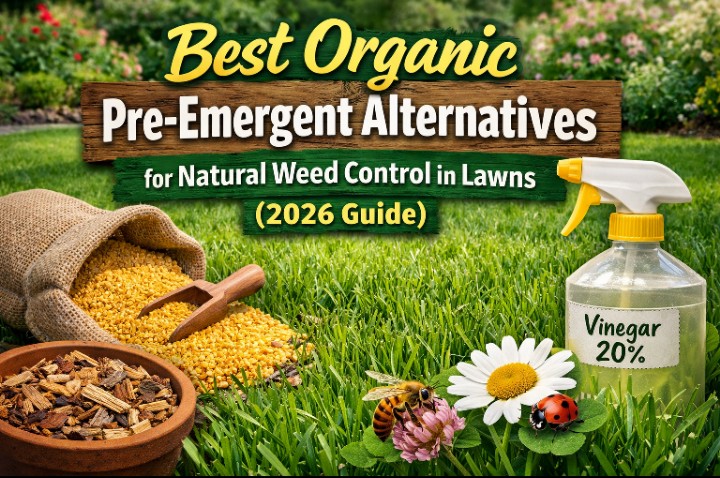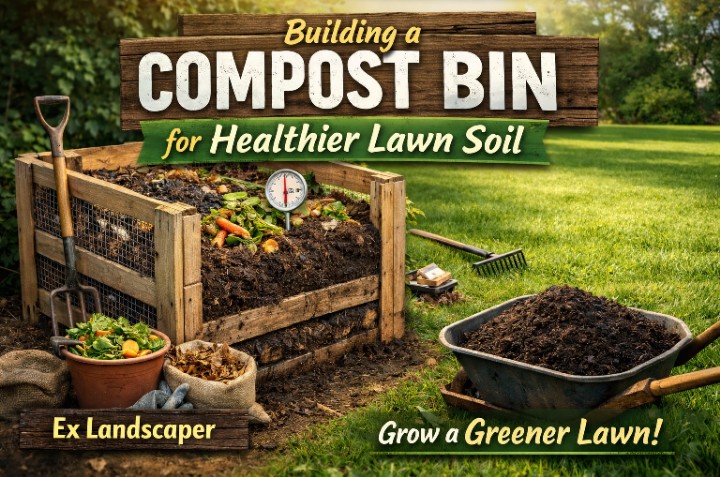Your Garden in Spring: Plan Now for a Great Grow-Potential Time to Plant is Around the Corner
Spring is here and that means your landscape is waking up. Whether you are nurturing that vegetable patch or keeping your lawn lush, one question is paramount: what fertilizer should you use? It’s more than that, choosing between organic and synthetic is not simply a question of what works best. It molds your soil, your water quality and the ecosystem of your neighborhood.
Allow me to explain how each type differs, and help you determine what is best.
Organic Fertilizers Explained: Nature’s Time-Release System
Organic fertilizers are natural in the truest sense. You can find them in compost, aged manure, bone meal and seaweed. These products are packed with nitrogen, phosphorus, potassium the nutrients plants crave. But they operate differently from commercial ones.
When you add compost to your garden beds, interesting stuff happens underground. Soil microbes decompose it slowly into organic matter. In this way, nutrients are released slowly throughout the growing season. Your plants are receiving constant nutrition, rather than occasional spikes.
When livestock manure and compost are applied to cropland, they help improve soil organic matter and tilth so that it’s in a better state for crop production. This is important if you wish to have healthy ones for years.
Take Sarah, a homeowner in Portland, Ore. She began using homemade compost in her vegetable beds five years ago. At first, her harvests were small. But after three seasons, the soil was darker, fluffier, her water-retentive. Her tomato plants now bear more fruit despite being watered less in dry summers.
Organic Benefits for Soil
Here’s the truth about what organic fertilizers do for landscape:
– They build soil structure. Compost is a sponge in your beds. Compost helps change soil health, water supplies and climate resiliency in favor of landscaping. Your soil retains water in drought and drains after heavy rain.
– They feed microorganisms. Those little critters in your soil are not just sitting there. The microorganisms in composted manure do a good job of making the nutrients in the compost available to your trees. This living ecosystem of microbes maintains the long-term vitality of those plants.
– They improve long-term fertility. Every season that you put in organic matter enriches your soil. And it adds up, so that over time you need to rely less on those external inputs.
– They work with your landscape. Manures and composts spread on gardens help these businesses reduce waste, recycle nutrients back onto the landscape, and provide indirect benefits to soil health.
Synthetic Fertilizers: The Fast Fix Your Garden Will Respond To Right Now
Synthetic fertilizers are manufactured products. They do contain exactly measured nutrients in concentrated doses. You see results quickly when you deploy them.
Such products avoid the need for slow decomposition. Rather, they readily dissolve in soil moisture and are absorbed by plant roots almost at once. And your grass greens up in a matter of days. Flowers bloom earlier. Yes, VEGETABLES GET BIG FASTER What that means is for every day your vegetable grows to be a bit bigger.
For financial reasons, commercial landscapers or property managers in Denver or Atlanta who are navigating large properties must work quickly. Artificial fertilizers get the job done when time is of the essence.
What Synthetic Fertilizers Are Really Costing Our Water
Here is where artificial fertilizers cause trouble that natural options don’t.
Most plants take up only about half of the nitrogen applied. A lot of the fertilizer applied to the land is lost as it runs into waterways, or broken down by microbes in the soil and released into the atmosphere as the potent greenhouse gas nitrous oxide.
This runoff does not just disappear. Water-soluble nitrate is leached from soils in runoff, polluting ground water, streams, estuaries and coastal oceans. Nitrate frequently makes drinking wells unusable in farming communities.
Consider an average Minneapolis neighborhood in the spring. Synthetic fertilizer runs downhill across multiple lawns after rainfall. It makes its way to the local streams and lakes. Extremely high nitrogen and phosphorous can result in water eutrophication, which gives rise to hypoxia or ‘dead zones’, results in fish kills and reduces that amount of aquatic organisms.
With runoff, nitrogen fertilizers can cause water bodies to have too much nitrogen, which then fuels algal blooms that deplete oxygen in the water and suffocate fish and other aquatic organisms.
This is not theoretical. These dead zones materialize in real, live lakes and rivers each summer in locales like Wisconsin and California.
Striking a Balance: A Smarter Plan for Your Landscape
The solution is not to pick one and reject the other entirely. Information is knowing when each type is appropriate.
Use synthetic fertilizers if:
– You want instant results to solve a plant problem
– You have a big property and short leashes
– You are looking for specific nutrient ratios for certain plants
– Budget is your biggest short term issue
Choose organic fertilizers if:
– You would like to enrich the soil in the longterm
– You are concerned about environmental impact on local waterways
– You like to minimize the use of chemicals around your house
– You are interested in supporting soil life & long term productivity
The combined approach works best:
Compost feeds the soil, fertilizer feeds the plants. This is a way to get 2-for-1 the short-term and long-term benefits in one.
You could give it a light dose of a balanced synthetic fertilizer in the spring to jump start its growth. Then mulch with organic compost around beds in summer. As a result, you get quick results with no sacrifice to long-term soil health or local water quality.
To the light of understanding!
You are not farming droughsers, as a homeowner or landscape lover. You have options that most farms can’t.
If you live in a place with not-great water quality (Portland, Seattle or any city that’s had the word “lead” in the headlines) organic options become more meaningful. Your local water utility may even have rules against fertilizer runoff. It can involve no more than a phone call to your city or county extension office.
Space may not be an issue if you are gardener tending a tiny urban plot in Boston or Chicago. Every square foot has to work. Using a combination of both to your advantage, you should be able to leverage each type’s strengths.
If you are like me, a landscape lover who likes to see immediate results, boom, that’s what synthetic fertilizers offer. Nothing wrong with that. Just watch your application rates and water run-off in heavy rains.
The End
Organic fertilizers are not good; synthetic fertilizers are not evil. Each plays a part in today’s landscaping practices. It’s about what matters because of who you prioritize, and what happens because you are there.
Organic fertilizers build something lasting. They enrich soil, year in and year out. They also contribute to water quality and local ecosystems. They move more slowly but effect lasting change.
Synthetic fertilizers provide immediate gratification. They are efficient for large spaces. They cost less upfront. When you need precision tools, they are.
And the most successful homeowners and fans of landscaping, use both. They strategically layer on synthetic alternatives when they seek quick results. They integrate manures and other organics all along to keep the soil healthy.
Your garden does not have to take sides. It only wants you to be aware of the differences involved, and make thoughtful choices about what lies down there.






